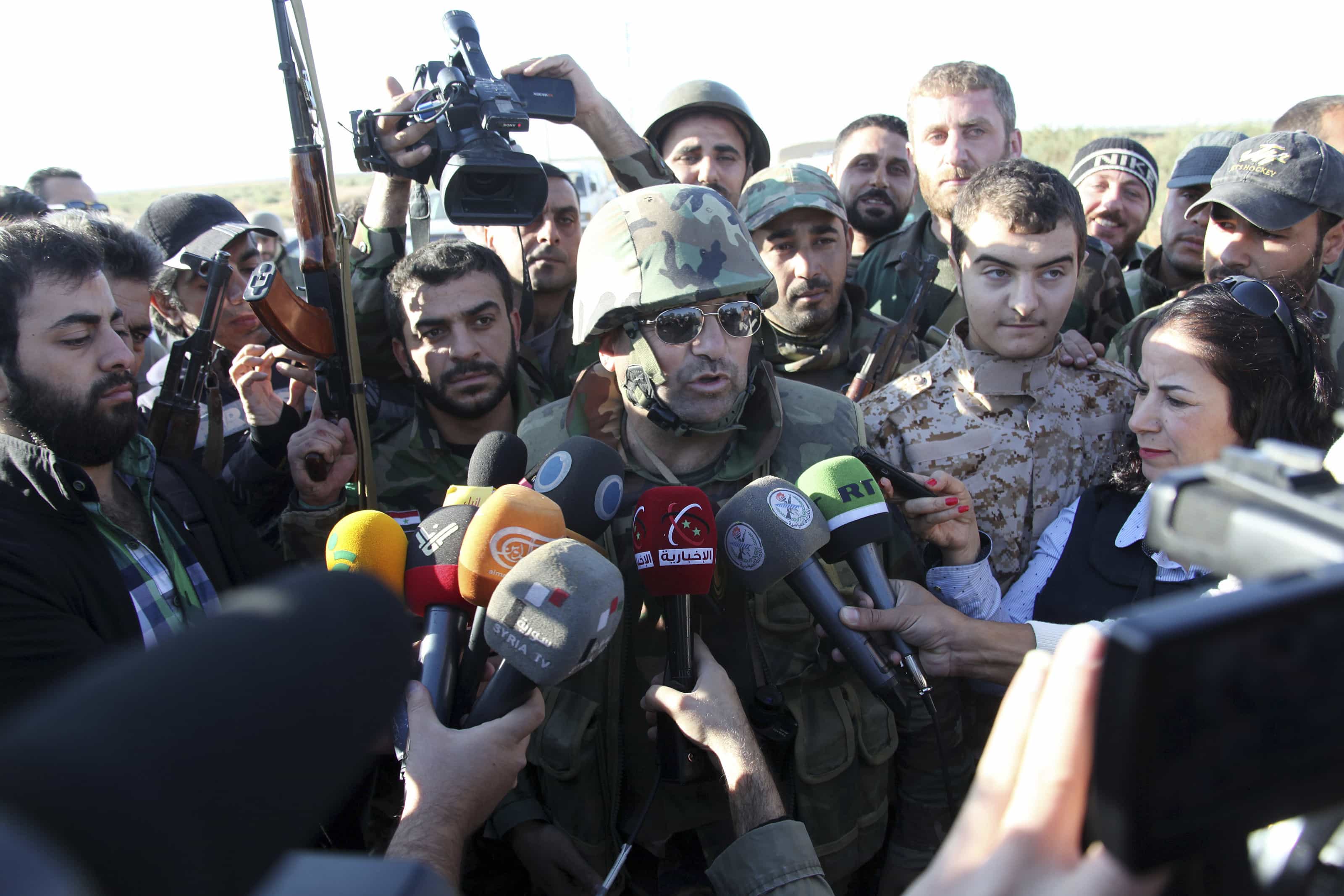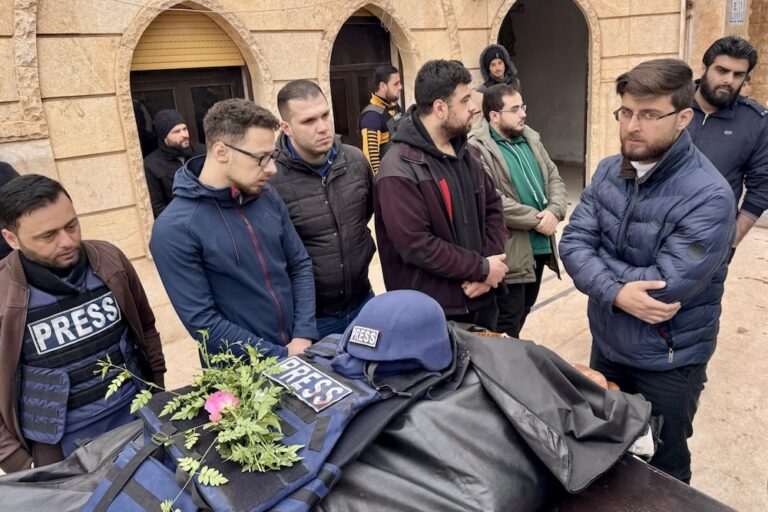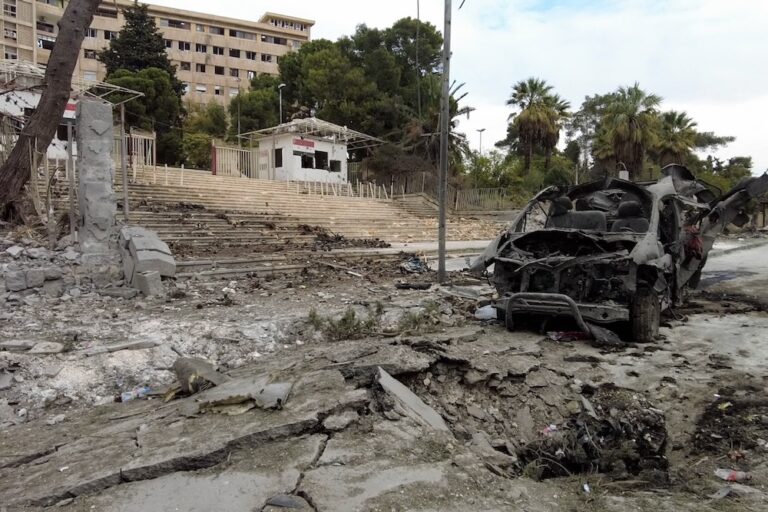More than 110 news providers have been killed in the course of their work in Syria since March 2011 and more than 60 are currently detained, held hostage or missing.
Syria is now the world’s most dangerous country for journalists. According to a Reporters Without Borders tally, more than 110 news providers have been killed in the course of their work in Syria since March 2011 and more than 60 are currently detained, held hostage or missing.
As Edouard Elias and Didier François, two French TV journalists who were abducted on 6 June, today begin their sixth month in captivity in Syria, Reporters Without Borders is releasing a report entitled “Journalism in Syria, impossible job?”
Two other French journalists, Nicolas Hénin and Pierre Torres, have been held hostage for four and a half months.
The report examines the growing perils of journalism in Syria, analysing the evolution in the dangers and identifying the origins of the threats and difficulties that Syrian and foreign news provider have encountered during the 32 months of the conflict.
At the start of the uprising, the Syrian army and its civilian thugs retaliated against journalists covering the anti-Assad protests and the government’s crackdown. Now Syrian and foreign journalists are targeted not only by the regular army but also by Jihadi armed groups in the “liberated areas” in the north, and by the security forces of the PYD, the main political force in the regions with a mainly Kurdish population.
Bashar Al-Assad was Syria’s only representative on the Reporters Without Borders annual list of “Predators of press freedom” in 2011 but Jabhat AlNosra was added to the list in 2013 and now other Jihadi groups deserve to be included such as Islamic State of Iraq and the Levant (ISIS).
Aside from the human toll, the report also shows that news coverage is one of the war’s collateral victims. The regime uses the state media in a propaganda and disinformation war, while the new media that quickly emerged after the start of the uprising have tended to turn into puppets of the “revolution” even if some of them strive to be professional.



